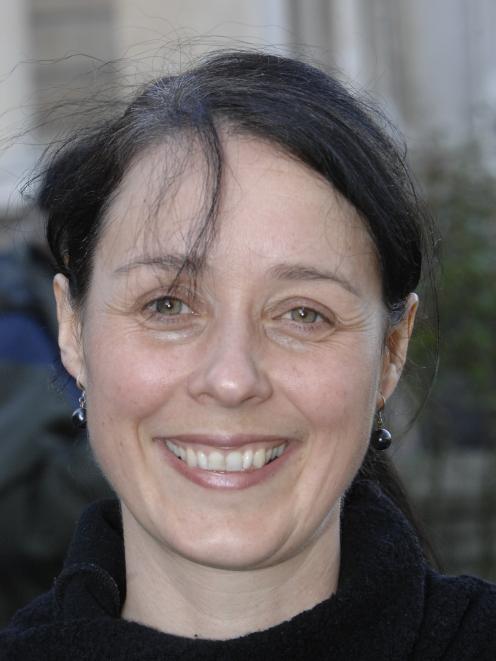
Kate Duignan is a Wellington writer and a former Burns Fellow. This is her second novel, and her first, Breakwater, was a confident work centred around a young solo mother and how she navigated difficult situations without falling to pieces. The New Ships focuses on a protagonist attempting to keep a grip on reality in trying times. With older characters and the presence of mortality, this second work has opted for a much wider span, where the spectre of the past is always there, ready to challenge the present.
It is late 2001, Wellington, and Peter Collie is deep in grief over the recent death of his wife, Moira. Son Aaron is back in town but will soon return to his acting career in London leaving his father completely bereft. At nights, the ngaio branches scrape noisily against the bedroom windows as he sleeps fitfully. On top of everything he worries about Aaron's debt, drinking, and the dark heart that seems to lurk within him. Also, work is stressful as Peter is being encouraged back into top-notch performance as a partner in a law firm, where, as such, he needs to tend to his "client maintenance". However, he is unable to concentrate on his work, with a mind occupied by the past, both with Moira and an earlier time overseas.

In his early, hedonistic 20s, Peter and friends drifted in Amsterdam, squatting aboard a houseboat. Work was variable, menial, and sometimes troublesome, and individuals came and went as he and his friends lived only for the present. However, on becoming a father to Abigail this immediately changed, and he attempted to be a responsible partner to Genevieve, from Lyon. Yet on the death of infant Abigail this lifestyle in Europe came to an abrupt end.
Abigail constantly haunts Peter's thoughts, and numerous times he has imagined her as she has aged, in various locations. He catches glimpses of women who might be her, as if by some "sleight of hand". Though rationally he knows this is impossible, Peter's thoughts of an adult Abigail take him back to Mytilene, a city on the island of Lesbos, which was a prominent place in his former life. Tangled up with this place are related motifs: of Chagall and his wife Bella and the Daphnis and Chloe paintings; and the legend of Orpheus rescuing his wife from the Underworld, all of which ceaselessly remind him of his own unsettled life and ongoing struggles.
Aaron leaves with hardly a word, yet in this time of sadness Peter begins to uncover much through silence. Aaron presents a "false-bright" smile, yet behind this is a man seeking to fill in gaps in his history. Where Peter's past had seemed solid, in this transitional time he feels that there are "gossamer cobwebs over gaping holes", shining as if airily, yet covering deception.
Kate Duignan guides her character cautiously along what has become unstable ground, and while Peter frequently falters, she keeps hold of the plot firmly. A carefully crafted and alluring story, The New Ships looks at an ordinary man's endeavours to stay afloat in the multiple areas of his life, or risk losing it all.
Jessie Neilson is a University of Otago library assistant.











